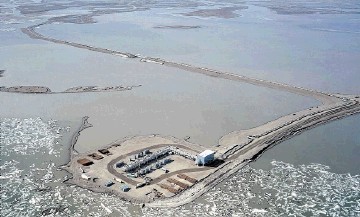
Delays and budget overruns on much-needed capital projects for the oil and gas and utility industries could cost companies in those industries trillions of dollars in lost investments, Accenture has warned.
Accenture found that only 34% of top decision-makers interviewed said they had delivered to within 25% of their approved budget for all projects, and fewer than a third said they delivered to the approved schedule.
When asked to identify challenges to getting projects launched on time, respondents most often blamed regulatory requirements (cited by 49%) and workforce/skills availability (25%).
The International Energy Agency (IEA) forecasts that the energy industry will spend nearly $38trillion globally on investments for global energy projects through 2035 to keep existing assets such as pipelines and electric grids and to build new assets.
Accenture surveyed 61 energy executives from 21 countries who have responsibility for capital projects of at least $1billion.
Using conservative assumptions based on its research, its energy analysts estimated that the potential overspend across the whole capital budget of the energy industries could be as much as 13%.
Put another way, that translates to a $5trillion overspend on the $38trillion IEA forecast for global investments.
Accenture offers six broad recommendations that could help eliminate some of the staggering cost overrun. They are:
o Risk management: Risks typically are not isolated; an issue in one area of a project often affects other areas, which is why having extensive cross-functional input is crucial. Organisations need a rigorous approach to assessing risks – at the project and portfolio levels – as well as robust processes for monitoring and mitigating them.
o Improved collaboration with suppliers: Rising asset-construction costs increase the pressure for operational excellence. Utilities companies, for example, are turning to EPC (engineering, procurement and construction) firms for turnkey execution of projects. Regardless of the number of contractors and suppliers, better methods of collaboration and data transfer need to be agreed upon in upfront planning.
o Data and analytics: Companies must have the capabilities to collect data at all levels and then leverage advanced analytics to gain insight from that data. At a basic level this includes comparing estimates on past projects, reviewing variances, and identifying causes of the variances to avoid repeating them.
o Project lifecycle: One of the key areas for improvement is the transition from the construction phase to an operating asset. It requires better collaboration across the teams responsible for planning and building to commissioning and start-up of the project.
o Talent: Developing a talent strategy early on is essential, and there are multiple elements to consider, including leadership, organisational culture and organisational structure.
The research was conducted by the Accenture Innovation Center for Energy and Utilities and guided by a steering committee led by Lord John Browne of Madingley and leading industry executives.